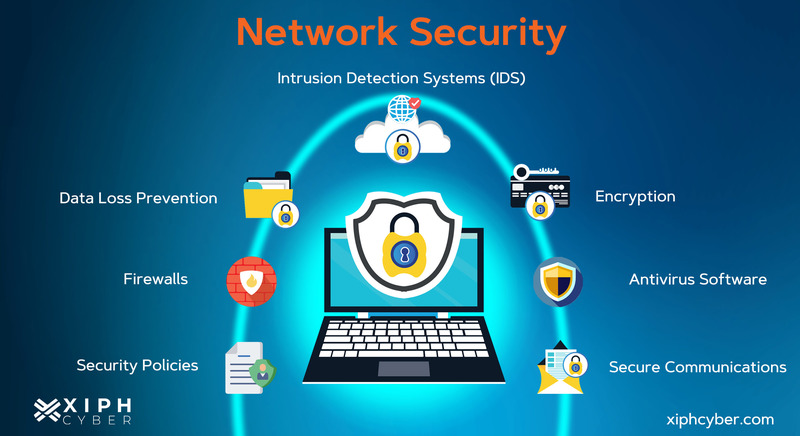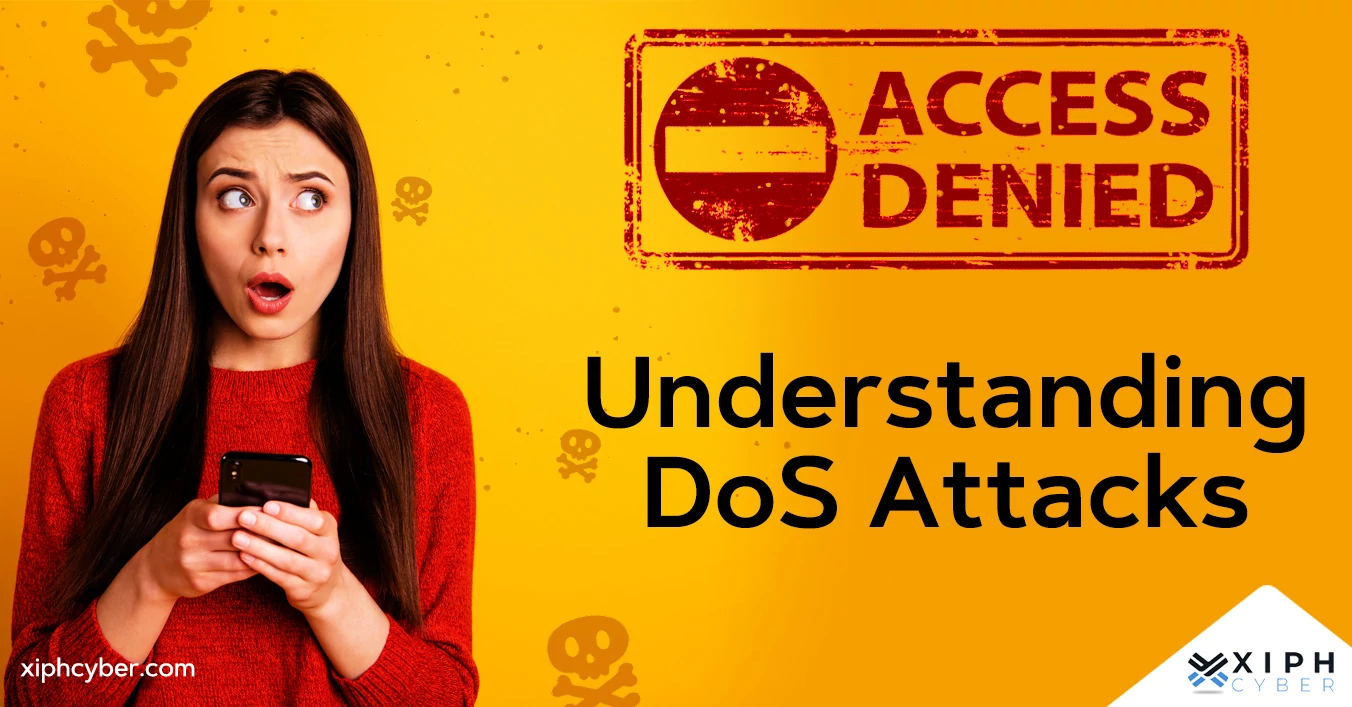Published Mar 01, 2023 by Xiph
Whether it’s implementing Zero Trust security, penetration testing, access controls, or regularly conducting vulnerability assessments ─ one thing is for sure, businesses big or small ─ should use every tool in their cyber arsenal to protect their network and data.

What is network security?
Network security is a combination of policies, practices, and hardware and software technologies that protect the usability and integrity of your business network and data. In other words, it protects your business’ network from unauthorised access. It can also prevent the misuse, modification, or denial of your computer network (i.e. DoS attack), and network resources including files, databases, and multimedia. Network security is designed to prevent data loss, ransomware attacks, phishing, and other cyber threats to business continuity.
Read more: What’s a denial-of-service (DoS) attack?
How does network security work?
Network security architecture consists of multiple layers of defences that protect the edge of the network, the network itself, and the applications that run over it. This will typically include a combination of anti-virus software, firewalls, a virtual private network (VPN), multi-factor authentication (MFA), access and web application controls, endpoint and perimeter security, and data backup and recovery policies, just to name a few. Effective network security strategies employ multiple lines of defence that are scalable, automated, and enforced by strict security policies to help reduce the risk of data theft.
How should businesses set up network security?
Every business with a presence online, customers and employees, and that wants to ensure business continuity should take network security seriously. Good network security starts with getting the fundamentals right ─ setting up a VPN and firewall as a first line of defence is crucial. Both work in conjunction to monitor, and filter incoming and outgoing network traffic based on a set of defined rules, and encrypt connections to and from your network. Another good practice is to conduct periodical network audits to identify potential security vulnerabilities before they’re exploited and test the strength of your existing protocols. Keep a network security maintenance schedule to stay up to date ─ network security breaches occur due to a lack of systems and processes. Businesses should also diligently apply automatic patching to all software, and applications that run on the networks to mitigate new cyber risks. It need not be said, but organisations should also have a robust data backup and recovery plan and undertake regular staff training on the latest security developments. Network security is about remaining proactive and is not a ‘set and forget’ process. Establishing a maintenance schedule ensures you keep on top of the latest threats and importantly, you keep your staff up to date with all potential threats.

Network security best practices for business
Here are some basic steps businesses should implement in their security protocol, although best practices should be tailored to individual organisations depending on their size, complexity, and respective industries.
- Bolster your endpoint security: Update your frontline defences to prevent threats from getting in. Endpoint security protects network endpoints and comprises tools that sit at the edge of your network. These may include Zero Trust access, web filtering, malware protection, next-generation firewalls, application/patch management, etc.
- Closely monitor your traffic: Always pair a VPN with a firewall to monitor the traffic coming in and out of your business network and to keep your network connection secure. Most businesses use a VPN to allow employees remote access to servers from locations outside the office, hide online activity and facilitate data transfers. VPNs and firewalls are two commonly used security tools to help reduce risk while maintaining usability.
Read more: What’s a VPN & how does it work?
- Update mobile device security: Most organisations now support corporate applications on personal mobile devices, so it’s important to configure all mobile connections in a way that protects both your business and anyone who deals with it. This will include controlling and monitoring which devices have access to your network and configuring their connections to keep network traffic private.
- Safeguard your data: Businesses’ most valuable asset outside of employees is data so make sure your data protection plan is ironclad. One of the most effective ways to protect data is by encrypting it both at rest and in transit, including all communications, personally identifiable information, and confidential business information. AES 256-bit encryption is the strongest and most robust encryption standard commercially available. Data backups should also be performed automatically and stored offsite for maximum protection.
Read more: Why your business needs a data backup plan NOW
- Employee training: Have a rigorous training program to clue your employees on cyber security and how to recognise red flags like phishing attempts, spoofing and dodgy websites. If an employee notices anything suspicious, such as not being able to log into an email account, they should notify the appropriate department immediately. Cyber security training programs will reduce the risk of data breaches.
- Password management: From generating strong passwords to monitoring the security score of your company, a reliable password manager is a powerful tool to have in your arsenal. These ensure your teams are using strong, unique passwords and store their credentials safely in a digital vault only accessible with the master password. Employees should be automatically prompted to update their passwords every three months.
- Use behavioural analytics: Some behavioural analytics tools combine machine learning, artificial intelligence (AI), big data, and analytics to automatically detect activities on your business network that deviate from the norm. This could detect suspicious activity from an external hacker, an insider threat or human error, or malware.
A final word
Network security is simply a matter of policy and implementation. Following the best practices and keeping up to date with what’s going on in the cyber space will go a long way to help keep your business network and data secure (and by extension your brand’s reputation). If you’re serious about your organisation’s network security (and you should be), contact us via email: enquiries@xiphcyber.com.
Posted in: Security


